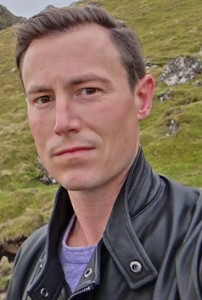 I came across a powerful article earlier from my American friend Ryan Centner who is an Assistant Professor of Urban Geography within the Department of Geography and Environment at The London School of Economics, about the troubles in Ferguson and beyond.
I came across a powerful article earlier from my American friend Ryan Centner who is an Assistant Professor of Urban Geography within the Department of Geography and Environment at The London School of Economics, about the troubles in Ferguson and beyond.
With his kind permission, it is published below.
–
Far from America for the last year and a half, I’ve watched my troubled country tear itself deeper, seemingly irreparable wounds related to race and politics – from Trayvon to a demonized president to Ferguson.
While I feel both saddened and powerless here in the distant capital of a faded empire, I also find myself teaching in London rather incessantly about the policies and processes that have formed exactly this kind of racialized America, that created and perpetuate the segregated, uneven, tense metropolis that we can recognize in St. Louis as a social minefield, but that also exists in kindred formations across America’s heterogeneous regions.
Explaining the forces behind the peculiarities of American urban geography makes many of these events depressingly unsurprising if no less tragic. Yet this work of explanation to non-Americans, even at times like these, exposes an inspiring facet of the United States: thanks to the struggles, sacrifices, collaborations, imaginations, and persistence of Americans who rebel against subjugation, who dare to dream of justice, and who refuse to accept dehumanization of themselves or their fellows in society, we have access to a language and consciousness about the history, spaces, and dynamics of racialized inequality quite unlike anything I have witnessed elsewhere.
What I mean is that the American experience has yielded vocabularies and frameworks for understanding as well as addressing disparity, the dimensions of differences that separate us, and attempting rectification – if all too slowly, with many flaws along the way. Because of this, Americans (at least a sizeable number of us) are able to talk about, do research on, protest around, and commit their lives to ameliorating racialized inequality in ways that people in many other countries find literally impossible to articulate – because they do not have a lexicon for it, at least not one that is broadly understood and resonates with their local histories and geographies.
While this is little comfort amid indignation, and offers no robust guarantees of improvement, it does shed a different light on the bursting rage of the moment and the swirling conversations around Ferguson. This unique asset of an attuned language gives us the ground to assert that #BlackLivesMatter, but it also allows us to capture new formulations and make new demands: about the law, about cities, about the political system.
On this day before Thanksgiving in England, where it will be merely just another Thursday, I am thankful for this language, for this articulability, and for the opportunity to project and create and continue remaking such language – out of struggle and into our service.
–
Dr Centner is an urban and development scholar. Before joining LSE he was Assistant Professor at Tufts University, near Boston, 2008-2013, where he lectured and advised in Sociology, International Relations, Urban & Environmental Planning, and Latin American Studies.
Dr Centner is currently completing a book manuscript about neighbourhood redevelopment amidst IMF-inspired reforms in Buenos Aires, where he completed more than two years of ethnographic fieldwork. He has authored several articles and is engaged in ongoing projects that investigate urban social change, transformation of the built environment, and their connections to larger political struggles – from Latin America (especially Argentina and Brazil) to the Middle East and Southern Europe (especially Turkey).
Dr Centner is active in the American Sociological Association and numerous scholarly groups related to global urban studies. He was one of the co-founders of the Transnational Studies Working Group at Tufts University. He received his PhD in Sociology from Berkeley in 2008.
You can find more of Ryan’s work at: lse.academia.edu/RyanCentner